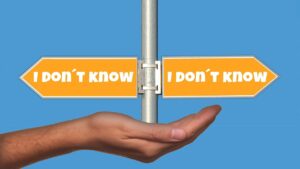Decision fatigue is more common than one might think. As an organizing professional I see it a lot. But what is it really, how does it show up and what can be done about it? This blog article takes a look at the idea from an organizers perspective.
Definition

According to Wikipedia, decision fatigue refers to the impact of having to make too many decisions, or too difficult decisions, in a short space of time. In other words, it is the impact of that experience that is the fatigue referred to by psychologists.
Decision fatigue is “the idea that after making many decisions, your ability to make more and more decisions over the course of a day becomes worse,” said Dr. MacLean, a psychiatrist. “The more decisions you have to make, the more fatigue you develop and the more difficult it can become.”
What it looks like when organizing.
As I mentioned this is a common experience for me as an organizing professional. Because I work with individuals affected by chronic disorganization, I specifically designed the hands on portion of my business to be face to face with clients for only 3 hr sessions at a time. (Sessions for packing and unpacking associated with move management are longer). The reason is specifically due to decision fatigue.
It did not take me very long as a newcomer to the industry to recognize that clients would literally stop making decisions at about 150 minutes, or 2.5 hrs into our session. I had already been introduced to decision fatigue while taking a Masters in Health Services Administration degree. So, I knew this could be an issue.
There are six ways decision fatigue shows up. Avoiding decisions, or glazing over, is just one of them.
- Reduced ability to make a trade off: in this impact, my clients can’t decide between choice A and choice B. If we agree that they will only keep one of two items, they can’t decide which one to choose.
- Decision avoidance: this second impact shows up as the client not wanting to make any decisions at all. Clients will sometimes show distraction from our task, ask me to make the decision or, for those who have more self-awareness, simply throw up their hands and state “I can’t decide”. For the record, no, I don’t make those decisions for my client.
- Impulsive activity: this is especially true for purchases at the cash register for shoppers. In organizing however, this impact of decision fatigue often show up as “throw it all out”. Clients impulsively decide to get rid of everything because they simply don’t have the mental energy left to decide.
- Impaired self-regulation: this is when the client doesn’t hold themselves to their usual standard of behaviour. Clients tend to get irritable and may be short or “snippy” with me or someone else in the family.
- Susceptibility to decision making biases: in this impact, the client tends towards an easier decision vs a correct or wise decision. It may be easier to simply not discard anything from a “I don’t like this” clothes pile than to be able to determine if any could hold any more value in the client’s future.
- Decision conflict and regret: In this impact the client becomes more and more worried about making a wrong decision. Eventually they just stop making decision altogether.
What do to about Decision Fatigue?
There are several ways to manage decision fatigue. When working with clients, I use whichever one works. I recommend you use whatever works for you.
- Take a break from the project you are working on. If possible physically remove yourself from the location and go to somewhere else even if it is just another room in the house or another office. Spend enough time in this other location doing something else until you feel at least a little bit refreshed.
- Change the task. If you are organizing clothes, try switching to working on a work project or making a meal. If possible, try switching to an entirely different task, however, even making decisions about a different set of items will help. If you are sorting clothes, try moving over to books.
- Go for a walk in nature. Walking in the woods, in a park or even just down the street will help to refresh your mind and your decision making muscles.
- Ensure you are adequately hydrated and have eaten enough to that point in the day. Many times while working, clients forgot to eat and drink. Hydration is most important however, being adequately nourished is also important.
Have you ever experienced decision fatigue? What was your experience? Drop me a note in the comments.



Leave a Reply